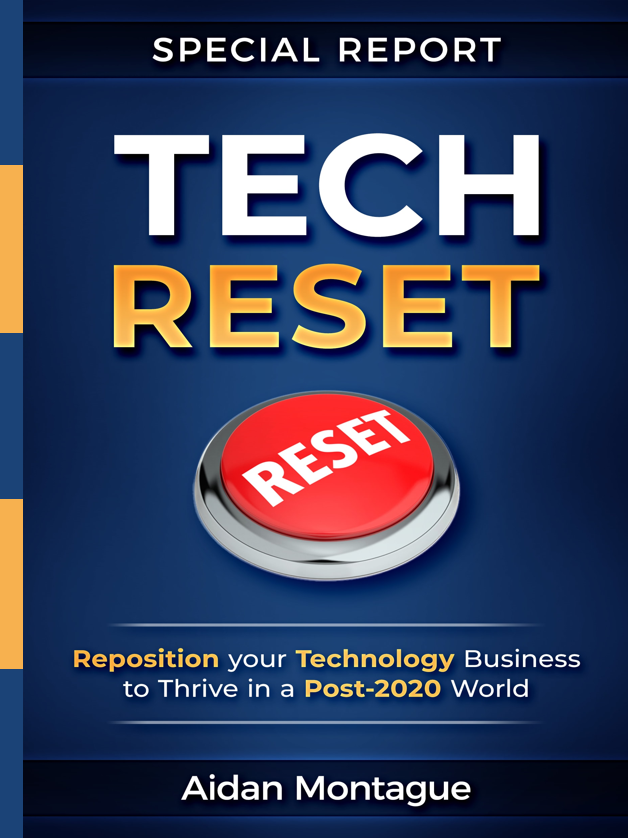
Startup "Near Death" Experience
Why Do Startups Go Through the "Near Death" Experience?
I was recently in conversation with a group of stockbrokers - many of whom had worked with technology startup businesses.
They were lamenting the fact that most startups seem to have to go through a near death experience, where they waste years and many millions of investor capital, before they emerge with a real business (some never do - they eventually just run out of cash).
We do not yet have product/market fit
I have also seen this time and time again. The story goes like this. "We are still pursuing "product/market fit". When we get to that point we will have tuned our product to meet the market need and then we can scale"
I know this is a very popular modus operandi amongst startup businesses. However, in my own experience, what is really happening is that they are going through a process of trial and error - hoping to find something that customers will buy.
Needless to say, this observation has made me very unpopular in many quarters.
According to a recent study by CBINSIGHTS, the number one reason cited for start-up failure was that they created a product that the market did not need.
Why do Start-ups Fail?
(Source CB Insights)
No Market Need 42%
Ran Out of Cash 29%
Not the Right Team 23%
The above analysis was based on 101 start-up post mortems – where the founder self-assessed their reason for failure.
The number two reason is that they ran out of money.
Now, there are many ways that you can run out of money, but a very good way is to build a product that the market doesn’t want – and then keep experimenting (or pivoting) either until you find product/market fit – or until you run out of cash.
So, let’s not confuse cause with effect. They run out of money because they are pursuing something that the market doesn't need. A solution looking for a problem.
Build Something That the Market Needs
It would seem logical. If you want to be successful, and raise capital and attract the best people, you need to build things that the market wants.
But this is where it gets a bit hairy. Why on earth would you build a product that the market doesn’t want? Well, you might, if none other than Steve Jobs bestowed permission on you!
“A lot of times, people don’t know what they want until you show it to them.” Steve Jobs
Now, who am I to argue with the mighty Steve Jobs?
However, that is very dangerous advice for most start-up founders. Firstly, you are not Steve Jobs! You do not live in the world that he did.
Steve Jobs was a one in a million genius who had extraordinary insight, did not believe in market research, and surrounded himself with a team of world class designers and the massive resources of Apple.
Also, Steve Jobs had a few expensive failures along the way too – so he was far from infallible. (Reference – Five Dangerous Lessons to Learn from Steve Jobs – Chunka Mui – Futurist and Innovation Advisor)
But it would be very unfair to blame Steve Jobs for the 90% (plus) of startups that are failing.
There is a whole startup culture built around lean startup and the pursuit of product/market fit. Is that where the problem lies? Maybe. However, it is probably also unfair to totally blame lean startup.
Startups were failing in droves before anyone ever heard of lean. However, it does not appear to have helped. In fact, some experts are now questioning whether product/market fit is even a thing!
According to Rand Fishkin, product-market fit is baloney. It is a broken concept. It is not reality. It is not even a useful mental model. You can read his views here - Product/Market Fit - A Broken Concept
Fiskin argues that we should kill it because it was never a good idea in the first place.
He has a valid point. Clearly something is not working in startup world. More than 90% of startups do not survive the near death experience that I referred to earlier. So, what is the solution?
In my own experience, the majority of the ones that survive, do so because they have very good leaders who eventually work out that the business is not on the correct path and they course correct. They are not chasing some elusive product/market fit or pivoting their way towards the holy grail.
They simply decide to build something that the market needs.
What do YOU think? I would be very interested in the opinions of others. Contrarian views are most welcome! Please leave your comments below.
The Problem:
90% plus of startup businesses are failing. Many seem to have to go through a near death experience before they eventually emerge with a business that works. Most never do. They just run out of cash.
The Solution:
I would go back to basics. Find out what the market needs. Solve a problem - preferably a desperate or "bleeding neck" problem. For the majority of founders, this is the path that has the best chance of success. Do not use a trial and error approach. Good people can course correct along the way but it is much better to design a business to solve a specific, known problem - from the outset.
As your solution develops, you should be able to market and sell to enough customers to help fund the early stages and give investors confidence to provide further capital. You can continually refine the product - based on feedback from these early adopters.
Of course, the alternative approach is to start the business on a hunch (because the market doesn't know what it wants until you show it to them) and then go hunting for product/market fit. Good luck! You may well be the next Steve Jobs or Mark Zuckerberg!
I know which business my stockbroker friends would be comfortable recommending to their influential investor networks.
What do YOU think? Please leave your comments below.

